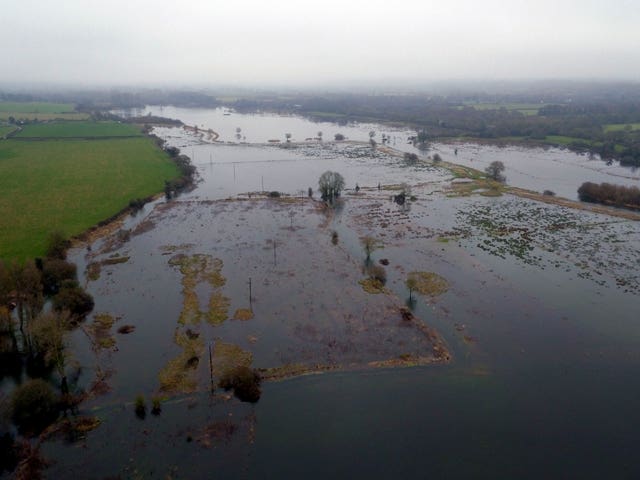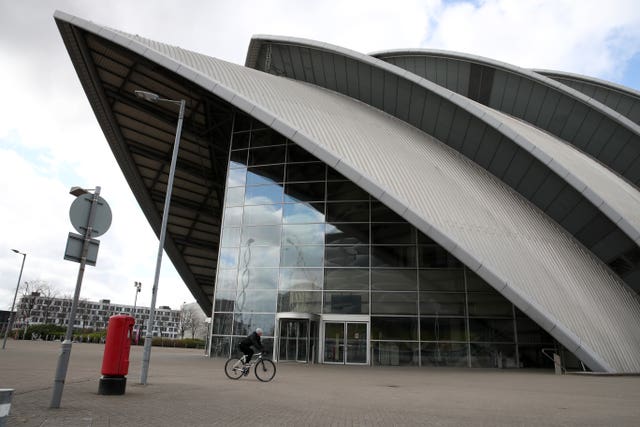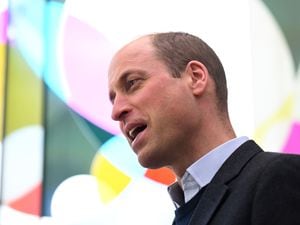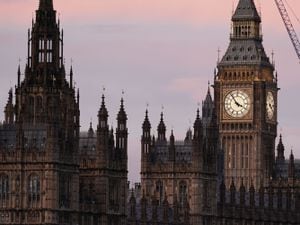UK’s new climate plan for Paris agreement – key questions answered
Countries are due to submit new or updated ‘nationally determined contributions’ under the global climate treaty in 2020.

A new “nationally determined contribution” to cut UK emissions by 2030 will form part of global efforts to tackle climate change under the Paris Agreement.
Here are some of the key questions answered.
– What are nationally determined contributions (NDCs)?
They are national plans submitted by countries under the global Paris Agreement. They outline post-2020 action to tackle climate change, with many of the current plans running to 2030.
– What is the Paris Agreement?
A global deal, agreed under the United Nations (UN) in the French capital in December 2015, which will see action by all countries to curb rising temperatures.
It is the world’s first comprehensive treaty on climate change.

– What does the treaty involve?
It commits countries to take action to limit temperature rises to “well below” 2C above pre-industrial levels and pursue efforts to keep them to 1.5C, to reduce the risks and impacts of climate change.
– Why the two numbers: 2C and 1.5C?
When the Paris Agreement was negotiated, there was a strong – and ultimately successful – push by nations such as low-lying island states to include the tougher 1.5C target because they felt that letting temperatures go any higher would threaten their survival.
– Will that really make a difference?
Yes, according to a report for governments by the Intergovernmental Panel on Climate Change (IPCC) in 2018.
It found a 2C rise would lead to more heatwaves, extreme rainstorms, water shortages and drought, greater economic losses and lower crop yields, higher sea levels and greater damage to coral reefs than a 1.5C rise.

– So how do we stop temperature rises going above 1.5C? Or even 2C?
As more greenhouse gases lead to more warming, stabilising the planet’s temperature at any level will require emissions to fall to zero overall.
To keep temperatures from rising to more than 1.5C in the long term, countries need to cut carbon emissions by 45% on 2010 levels by 2030 and to net zero by 2050, with steep cuts in other greenhouse gases.
That requires a rapid, far-reaching and unprecedented change across society to cut greenhouse gas emissions from every sector, from power, transport and industry, to homes, farming and food systems.
– What is net zero?
Net zero, also sometimes referred to as carbon neutrality, means that overall the output of emissions must be zero.
To achieve it, emissions have to be cut as much as possible, and any remaining pollution, from hard-to-tackle sectors such as aviation, need to be “offset” by action that absorbs carbon, such as planting trees or using new technology to capture it from the air.
– If the Paris Agreement was negotiated in 2015, why are we unveiling our NDC now?
There are two reasons for that. The first is that when the Paris deal was agreed, the national climate plans countries had submitted were far from enough to meet the temperature goals to avoid dangerous warming.
So a five-year review and ratchet mechanism to increase ambition was included in the treaty, with countries due to submit new or updated climate plans in 2020.
The second reason is Brexit: the European Union negotiates in the UN climate talks as a single bloc, and had a single NDC that the UK was part of.
Now the UK is leaving the EU, it has to produce its own standalone plans.
– We are just one country, what does it matter what the UK does?
While the UK’s current emissions make up only a small percentage of the overall global output, the country led the industrial revolution and has made a major contribution to greenhouse gas pollution over time.
The UK is also hosting the next round of UN climate talks, which will take place in Glasgow in November 2021 after being postponed from this year by the pandemic.

In the absence of talks this year, and in the face of the 2020 deadline for new climate plans, the UN, UK and France are co-hosting an online summit where countries are being urged to put forward more ambitious NDCs.
It is hoped ambitious targets for emissions cuts by 2030 in our climate plans can provide global leadership and send a signal that will inspire other countries to follow suit.
– Can we meet the targets?
The Government’s advisory Committee on Climate Change has said an ambitious 2030 target is “eminently achievable” and would put the UK on track to meet its Paris Agreement obligations and its legal target for net zero by 2050.
But, as the UK is currently off track to meet less ambitious targets for 2030, effective policies need to be introduced across the economy without delay, the committee has warned.
It will require action including a major shift to electric vehicles, low carbon power, and clean heating systems for homes such as heat pumps by 2030.





